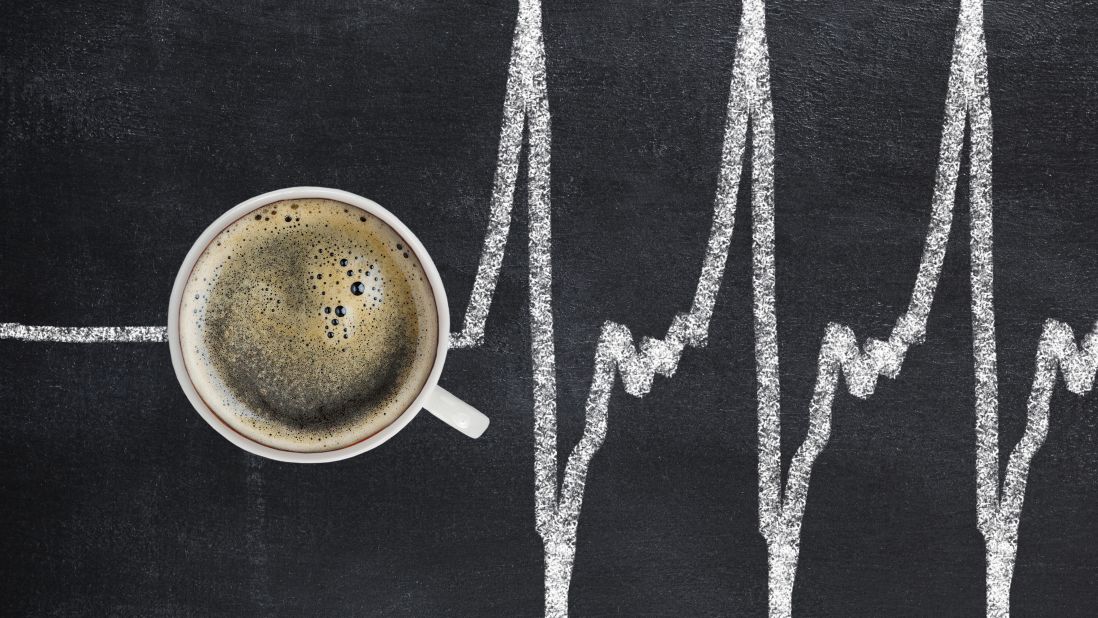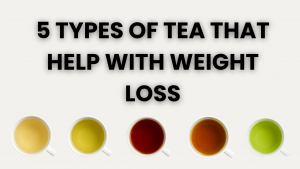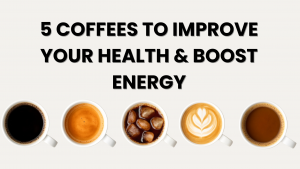
How Coffee Affects Your Sleep and Energy Levels
Table of Contents
- Understanding Caffeine: The Energy Booster
- How Coffee Affects Sleep
- 1. Caffeine's Half-Life
- 2. Caffeine and Sleep Onset
- 3. Nighttime Awakenings
- The Energy-Sleep Cycle and Coffee
- 1. Morning Boost
- 2. Midday Crash
- 3. Energy Roller Coaster
- How Much Coffee is Too Much?
- How to Enjoy Coffee Without Sacrificing Sleep
- 1. Time Your Coffee Intake
- 2. Opt for Decaf in the Afternoon
- 3. Limit Overall Caffeine Intake
- 4. Stay Hydrated
- 5. Pay Attention to Your Body
- The Surprising Benefits of Coffee for Sleep and Energy
- 1. Coffee Naps
- 2. Protects Against Neurodegenerative Diseases
- 3. Boosts Metabolism
- Conclusion
How Coffee Affects Your Sleep and Energy Levels
- azeem memon
- 20-09-2024
- 20-09-2024
- 1816 views
- Coffee Health

Coffee is often celebrated as a morning ritual and a productivity booster, but it’s also the subject of debate when it comes to sleep and energy levels. The complex relationship between coffee, sleep, and energy can influence your daily routine, mental clarity, and overall health.
In this blog, we’ll explore how coffee impacts your energy, what happens to your sleep cycle when you consume caffeine, and how to enjoy coffee without disrupting your rest.
Understanding Caffeine: The Energy Booster
Caffeine, the primary active ingredient in coffee, is a stimulant that affects your central nervous system. It works by blocking adenosine receptors in the brain. Adenosine is a neurotransmitter that promotes relaxation and sleepiness. When caffeine blocks these receptors, you feel more alert and awake.
Here’s how caffeine affects your body:
- Quick Energy Boost: Caffeine is absorbed rapidly, typically reaching peak blood levels within 30 to 60 minutes. This quick absorption explains why you often feel a jolt of energy shortly after drinking coffee.
- Mood Improvement: Besides energy, caffeine increases dopamine levels, which can enhance your mood and make you feel more motivated.
- Increased Mental Focus: Many people drink coffee to improve concentration. Caffeine can enhance cognitive functions like memory, focus, and reaction time.
How Coffee Affects Sleep
While coffee has well-known benefits for increasing energy and focus, it can interfere with your sleep if consumed in excess or at the wrong time of day.
1. Caffeine’s Half-Life
One of the critical factors to consider is caffeine’s half-life—the time it takes for the amount of caffeine in your bloodstream to reduce by half. On average, caffeine’s half-life is about 5 hours, meaning that if you drink a cup of coffee containing 100 milligrams of caffeine at 3 PM, by 8 PM, 50 milligrams of caffeine will still be in your system.
This prolonged effect can disrupt your sleep cycle if you drink coffee later in the day.
2. Caffeine and Sleep Onset
Caffeine not only delays the time it takes for you to fall asleep (sleep onset) but can also reduce the amount of deep sleep you get. Deep sleep is essential for physical restoration and overall health, and even a moderate amount of caffeine can reduce your sleep quality.
- Sleep Latency: Studies show that caffeine intake can lengthen the time it takes to fall asleep, particularly if consumed within six hours before bed.
- Reduced REM Sleep: Caffeine can reduce rapid eye movement (REM) sleep, the stage where dreaming occurs and memory consolidation happens. Lack of REM sleep can make you feel groggy and unfocused the next day.
3. Nighttime Awakenings
If you’ve ever woken up in the middle of the night after a late-afternoon coffee, it’s because caffeine can increase nighttime awakenings. Even if you fall asleep, the stimulant effects may still affect the quality of your rest.
The Energy-Sleep Cycle and Coffee
To better understand how coffee fits into your routine, it’s essential to consider the interaction between your natural energy levels and sleep needs.
1. Morning Boost
Many people start their day with coffee because caffeine counters the body’s natural sleepiness, especially after waking up. In the morning, your adenosine levels are low, and the caffeine’s effects are particularly potent, leading to that “awake and alert” feeling.
2. Midday Crash
One common pattern is the “afternoon slump,” where energy levels dip after lunch. While a cup of coffee may feel like a necessary pick-me-up during this time, it can disrupt your energy cycle later in the day. If consumed too late, caffeine will stay in your system, potentially leading to trouble falling asleep.
3. Energy Roller Coaster
While coffee can provide temporary energy, it can sometimes lead to an energy roller coaster. After the initial caffeine high, your body may experience a “crash” when caffeine starts to wear off. This often results in consuming more caffeine to stay alert, perpetuating a cycle of highs and lows.
How Much Coffee is Too Much?
The effects of caffeine vary depending on individual factors like genetics, tolerance, and metabolism. Some people metabolize caffeine quickly and can drink coffee late in the day without disrupting their sleep, while others are more sensitive and find that even a morning cup impacts their night.
However, health experts generally recommend limiting caffeine intake to 400 milligrams per day—roughly equivalent to four 8-ounce cups of coffee.
- Moderate Consumption: For most people, consuming 1-3 cups of coffee early in the day provides a healthy boost in energy without impacting sleep.
- Excessive Consumption: More than 4 cups can lead to restlessness, jitters, and significant sleep disturbances, especially if consumed later in the day.
How to Enjoy Coffee Without Sacrificing Sleep
Balancing coffee consumption with healthy sleep habits is key to maximizing its benefits while avoiding sleep disruption. Here are some tips to help you enjoy coffee while still getting quality rest:
1. Time Your Coffee Intake
To prevent coffee from interfering with sleep, avoid consuming caffeine at least six hours before bed. If you sleep at 10 PM, try to make your last cup before 4 PM.
2. Opt for Decaf in the Afternoon
If you enjoy the ritual of an afternoon or evening cup of coffee, switch to decaf. Decaffeinated coffee contains only about 2-5 milligrams of caffeine, compared to 80-100 milligrams in regular coffee. You’ll still get the taste and experience without the stimulant effects.
3. Limit Overall Caffeine Intake
Try to stay within the recommended 400 milligrams of caffeine per day. Remember that other foods and beverages, such as tea, soda, energy drinks, and even some medications, may contain caffeine, contributing to your total intake.
4. Stay Hydrated
Caffeine is a diuretic, which means it can dehydrate you if consumed in large amounts. Staying hydrated can help offset some of the negative effects of too much caffeine, including restlessness or an afternoon crash.
5. Pay Attention to Your Body
Everyone reacts to caffeine differently, so it’s important to listen to your body. If you notice that you feel jittery or have trouble sleeping, it might be a sign that you’re consuming too much caffeine or drinking it too late in the day.
The Surprising Benefits of Coffee for Sleep and Energy
Interestingly, while coffee is often associated with energy, it may also have some indirect benefits for sleep:
1. Coffee Naps
A coffee nap involves drinking a cup of coffee followed by a quick 20-minute nap. The idea is that by the time you wake up, the caffeine has started to take effect, leaving you feeling even more refreshed than with a regular nap. While this might sound counterintuitive, some studies have shown that coffee naps can increase alertness more effectively than caffeine or naps alone.
2. Protects Against Neurodegenerative Diseases
Regular coffee consumption has been linked to lower risks of neurodegenerative diseases like Alzheimer’s and Parkinson’s. While the exact reason isn’t fully understood, it’s believed that caffeine helps protect brain cells over time, indirectly supporting long-term cognitive health and focus.
3. Boosts Metabolism
Coffee can increase your metabolic rate, helping your body burn fat more efficiently. By giving you more energy to engage in physical activities, it indirectly supports better sleep by promoting a more active lifestyle.
Conclusion
Coffee can be a powerful tool for boosting energy and improving focus, but it comes with trade-offs when it comes to sleep. To make the most of your coffee habit without sacrificing rest, it’s essential to time your intake carefully and stay mindful of how much caffeine you consume.
By understanding the science behind how coffee affects your sleep and energy levels, you can enjoy the benefits of this beloved beverage while maintaining a balanced, healthy lifestyle.






















